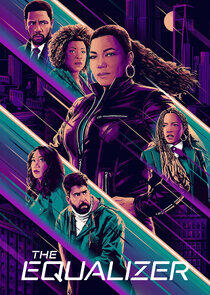America's Secret Slang - Season 2
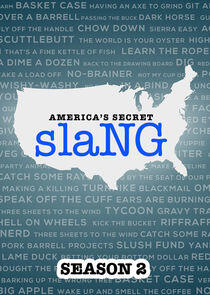
Season 2

Episodes
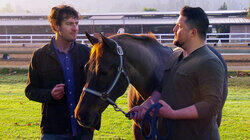
Straight from the Horse's Mouth
In this episode, we look at the ways that American English has been transformed by animals, food, sports--and death. Ever wonder why we say "that's a horse of a different color" or "that's for the birds"? Why do we "chew the fat" when we talk or "put up our dukes" when we fight? And why, when we die, do we "kick the bucket"? All these terms show the ways that American English has evolved and mutated through the animals we raise, the food we eat, the games we play and the end we want to avoid. Zach Selwyn hosts.
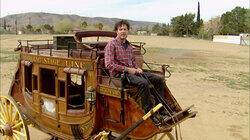
Riding Shotgun
Every day we use words and phrases that come from deep within our history. Their origins reveal a lot about us and where we came from, but most of us have no idea what these terms originally meant. In this episode we look at how forms of transportation from horses to trains to cars, and different intoxicating substances from opium to booze, influenced the common words and phrases we say every day. Why do insensitive people "ride roughshod" over others, while lucky people ride the "gravy train?" Who put the jay in "jaywalker," and the bus in "busboy?" Why are "highways" high, what do "turnpikes" turn, and why is a wild person "hell on wheels?" When it comes to substances, who put the hero in heroin, the junk in junkie, and the ooze in booze? And what's the connection between George Washington and the words grog and groggy?
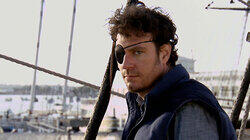
Lower the Boom
In this episode, we look at the ways that American English was transformed by the high seas, the ancient world, the movers and shakers of big business, and the news industry. Ever wonder why we're "pooped" when we're tired? Or say that a drunk is "three sheets to the wind"? Why do we say our "ears are burning" if someone's talking about us, and why is October the 10th month, even though its name means "8th"? Why is a rich, powerful person called a "tycoon"? And why are those supermarket scandal sheets called "tabloids"? All these terms show the powerful impact that sailing, big business, the ancient world and the news media have had on American English.
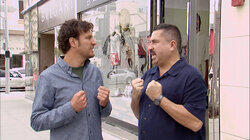
Off the Cuff
In this episode, we look at the ways that American English has been transformed by the clothes we wear, the crimes we commit and the punishments we receive, the insults we use...and the internet. Ever wonder why, when we "speak off the cuff," we're "flying by the seat of our pants"? Why is a street robbery called a "mugging," and does "blackmail" really have anything to do with mail? What's the difference between a "nerd" and a "geek," and who was the first person to use "OMG"? All these terms show the ways that American English has built up a wardrobe of words by begging, borrowing and stealing.
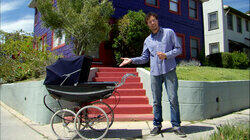
Cut to the Chase
In this episode we look at how entertainment from circuses and vaudeville to plays and movies, influenced the common words and phrases we say every day. How did bad actors give us the word "explode," rude actors give us the phrase "to upstage" someone, and superstitious actors give us "break a leg?" How did the circus give us words like "jumbo" and "Siamese twins," and the idea that politicians "jump on the bandwagon?" Why did vaudeville invent "deadpan" humor, "slapstick" comedy and "off color jokes?" And how did the movies give us expression like "cut to the chase" and "cliffhanger?"
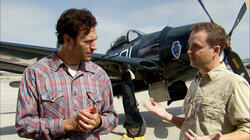
Bite the Bullet
In this episode, we look at words from the worlds of the military, police, aviation, and baseball. Ever wonder why a "last ditch effort" rarely involves digging an actual ditch? Or why a temporary worker is hired as a "freelancer"? How did the army tank get its name? Why do we shoot at a bulls-eye, and is it "duct" tape or "duck" tape? When a test pilot "pushes the envelope," what envelope is his pushing? What's the connection between one of America's outlawed sports, and the front of every plane? Words that started on the baseball diamond have spread to aspects of our everyday life. Why is a "southpaw" so named, not just in baseball, but in life? And if you want to see a bunt, the old ball yard isn't the only place for that... All these words and phrases show the richness and depth of our language. If you just know where to look.
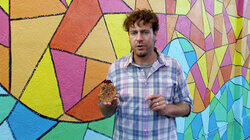
Go for Broke
In this episode, we look at the ways that American English has been transformed by the Vikings, the Cold War, computers, music, gambling, and the different meaning we give to the colors of the rainbow. Why is a "red letter day" good, but being "in the red" is bad? Why do we "boot up" a computer? What's a "jackpot" and why do we "hit" it? Did the term "Cold War" really begin in the Middle Ages? And what's the original meaning of the Viking word "thing"? All these terms show the ways that American English has been invigorated by crises from Viking invasions to the threat of nuclear war, and inspired by the colors we see, the music hear...and the money we lose in bets. And they prove that when it comes to our unique American language, we speak our history every day. If you just know where to look.
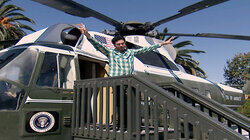
Hail to the Chief
In this episode, we look at the ways that American English has been transformed by American presidents, by the language of sex and romance, by good and bad manners. We'll also explore how easy it is to insult people of different groups without even realizing it. Did you know who invented the phrase Founding Fathers, and what the Founding Fathers originally called themselves? Or how American presidents popularized terms like "three martini lunch," "lunatic fringe" and "keep the ball rolling?" When it comes to insults, did you know that the cheer "hip hip hurray" was originally anti-Semitic, "hooligan" was anti-Irish, and the phrase "in cahoots" was anti-French? When it comes to sex, how did a diet of meat give us the word "mating," why do young men "sow their wild oats," and why is the word "hysterical" an insult to women? And when it comes to manners, we'll explore the strange roots of words like "posh," "snob," "stuck up" and even "hello" and "goodbye."
Recently Updated Shows

The Rookie
The Rookie is inspired by a true story. John Nolan is the oldest rookie in the LAPD. At an age where most are at the peak of their career, Nolan cast aside his comfortable, small town life and moved to L.A. to pursue his dream of being a cop. Now, surrounded by rookies twenty years his junior, Nolan must navigate the dangerous, humorous and unpredictable world of a "young" cop, determined to make his second shot at life count.
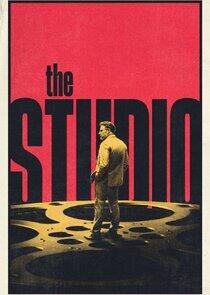
The Studio
As movies struggle to stay alive and relevant, Matt and his core team of infighting executives battle their own insecurities as they wrangle narcissistic artists and craven corporate overlords in the ever-elusive pursuit of making great films. With their power suits masking their never-ending sense of panic, every party, set visit, casting decision, marketing meeting, and award show presents them with an opportunity for glittering success or career-ending catastrophe. As someone who eats, sleeps, and breathes movies, it's the job Matt's been pursuing his whole life, and it may very well destroy him.

True Detective
Touch darkness and darkness touches you back. True Detective centers on troubled cops and the investigations that drive them to the edge. Each season features a new cast and a new case.
True Detective is an American anthology crime drama television series created and written by Nic Pizzolatto.

S.W.A.T.
Shemar Moore stars as a locally born and raised S.W.A.T. sergeant newly tasked to run a specialized tactical unit that is the last stop in law enforcement in Los Angeles. Torn between loyalty to where he was raised and allegiance to his brothers in blue, former Marine Daniel "Hondo" Harrelson has everything it takes to be an excellent leader and bridge the divide between his two worlds.
